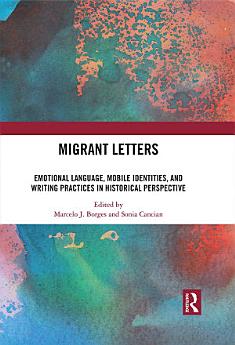Migrant Letters: Emotional Language, Mobile Identities, and Writing Practices in Historical Perspective
Über dieses E-Book
Influenced by methodologies from diverse disciplines, the study of migrant letters has developed in myriad directions. Scholars have examined migrant letters through such lenses as identity and self-making, family relations, gender, and emotions. This volume contributes to this discussion by exploring the connection between the practice of letter writing and the emotional, economic, familial, and gendered experiences of men and women separated by migration. It combines theoretical and empirical discussions which illuminate a variety of historical experiences of migrants who built transnational lives as they moved across Europe, Africa, Latin America, and the United States. This volume was originally published as a special issue of The History of Family.
Autoren-Profil
Marcelo J. Borges is Professor of History at Dickinson College, PA, USA, where he teaches Latin American history and migration history. He has published on migration, labor, and migrant letters. He is the author of Chains of Gold: Portuguese migration to Argentina in transatlantic perspective.
Sonia Cancian is Assistant Professor of Global Studies at University College, Zayed University, Dubai, UAE. She is the author of numerous publications on migration, gender, emotions, and migrant correspondence, including Families, lovers and their letters: Italian postwar migration to Canada (2010).




